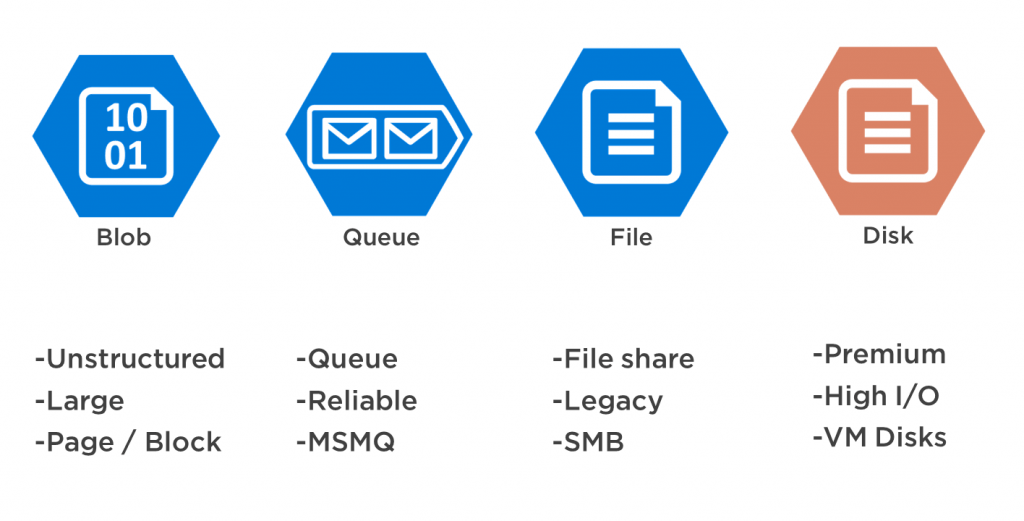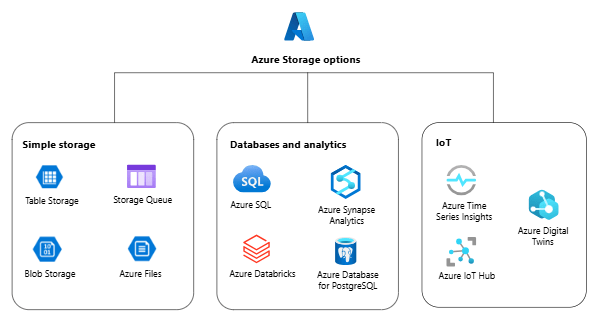
- Introduction to DP-200 Certification
- Who Should Take the DP-200 Exam?
- Exam Format and Structure
- Data Storage and Processing in Azure
- Key Domains Covered in the Exam
- Security and Compliance in Azure Data Solutions
- Best Study Resources and Training Materials
- Hands-on Labs and Practical Experience
- Tips for Passing the DP-200 Exam on the First Attempt
- Career Opportunities After DP-200 Certification
- Salary Expectations and Market Demand
Introduction to DP-200 Certification
The DP-200: Implementing an Azure Data Solution certification exam is designed for professionals who wish to demonstrate their ability to implement and manage data solutions on Microsoft Azure. This certification validates expertise in working with various data services and tools available on Azure, such as data storage, data processing, data security, and integration. The DP-200 certification can help professionals advance their careers in data management, specifically within the Azure ecosystem.Azure, a cloud platform, offers a range of tools for managing data at scale. Obtaining the DP-200 certification will allow candidates to prove their proficiency in implementing data solutions using these tools. The certification is part of the broader Microsoft Certified: Azure Data Engineer Associate credential and it equips candidates with the skills necessary to design and implement Azure data solutions that meet business needs.
Who Should Take the DP-200 Exam?
The DP-200 exam is ideal for professionals working with Azure data services responsible for implementing and managing data solutions in Azure.Candidates are highly recommended to have a solid understanding of core Azure services and experience with database management, cloud storage, and data processing before attempting the DP-200 exam.Typically, candidates for the DP-200 exam include:
- Azure Data Engineers:Data engineers who work on designing and building data solutions on Azure. They are responsible for managing databases, data processing pipelines, data security, and ensuring the overall architecture is optimized for performance and scalability.
- Data Architects:Professionals who design and architect Azure data services and processing systems. They must have a strong understanding of the various data services and how they can be used to meet business needs.
- Data Analysts and Scientists:Individuals who want to expand their knowledge into the technical side of data management and implement data solutions using Azure’s tools.
- Cloud Solution Architects:Architects responsible for defining the architecture and integrating Azure data solutions into a cloud-based infrastructure.
Exam Format and Structure
The DP-200 exam consists of multiple-choice, case studies, and scenario-based questions. The exam is designed to assess a candidate’s ability to implement data solutions on Azure and their understanding of key Azure Data Lake Storage technologies. Exam Topics Implementing Data Storage Solutions (40-45%),Managing and Enabling Data Processing (25-30%),Monitoring and Optimizing Data Solutions (10-15%),Managing Data Security and Compliance (10-15%)Candidates should be familiar with Azure’s data solutions, including Azure SQL Database, Azure Data Lake Storage, Azure Synapse Analytics, and other data tools.Here are the essential aspects of the exam:
- Duration: The exam lasts approximately 120 minutes (2 hours). Number of Questions: The exam typically contains 40-60 questions, but this number can vary.
- Question Types: Questions include multiple-choice, drag-and-drop, scenario-based, and case studies.
- Passing Score: The exam’s passing score is 700 out of 1000, though the exact score required to pass can change depending on the difficulty of the exam version.
- Cost:The exam fee is around USD 165, which may vary depending on your location.
Data Storage and Processing in Azure
Azure provides various storage and processing services essential for building scalable, high-performance data solutions. The DP-200 certification focuses on ensuring that candidates have an understanding of these services, including:Azure SQL Database for relational database management.Azure Blob Storage and Azure Data Lake Storage for unstructured data and big data solutions.Azure Cosmos DB for globally distributed, multi-model database solutions.Azure Synapse Analytics for large-scale data warehousing and analytics.Azure Data Factory is used to build data pipelines for data integration and transformation.

Key Domains Covered in the Exam
The DP-200 exam focuses on four significant domains for implementing Azure data solutions. The key domains covered include:
- Relational Data Storage:Implement and manage SQL-based solutions, including Azure SQL Database, Azure SQL Managed Instance, and Azure Synapse Analytics.
- Non-relational Data Storage: Implement and manage NoSQL solutions, such as Cosmos DB, Azure Table Storage, and Azure Blob Storage.
- Data Lakes: Implement and manage Azure Data Lake Storage, including organizing data storage, working with files, and securing the data lake.
- Data Warehousing: Implement and manage Azure Synapse Analytics (formerly SQL Data Warehouse) for large-scale data storage and analytics.
- Data Integration: Work with Azure Data Factory and other services to integrate and move data across Azure services.
- Data Processing Pipelines: Implement and manage data pipelines in Azure Data Factory to orchestrate ETL processes.
- Real-time Data Processing: Implement solutions that process real-time data streams using Azure Stream Analytics, Azure Databricks, and Azure Functions.
- Batch Data Processing: Implement batch processing solutions for large-scale data processing using Azure Databricks or Azure HDInsight.
- Data Transformation: Work with data transformation techniques using Azure Databricks and other Azure tools to process large datasets.
- Monitoring Data Solutions: Implement monitoring solutions using Azure Monitor, Application Insights, and other Azure monitoring tools.
- Data Solution Performance: Optimize data solutions for performance, scalability, and cost-efficiency, including query optimization, indexing, and partitioning.
- Cost Management: Monitor and optimize the cost of Azure data services to ensure that budgets and performance goals are met.
- Security and Privacy: Implement data security measures such as rest and transit encryption, Azure Key Vault, and identity management via Azure Active Directory (AAD).
- Compliance: Ensure compliance with regulations and data privacy standards, including GDPR, HIPAA, and other industry-specific standards.
- Data Access Control: Configure access control for data stored in Azure services, including managing roles, permissions, and access policies.
Implementing Data Storage Solutions (40-45%)
Managing and Enabling Data Processing (25-30%)
Monitoring and Optimizing Data Solutions (10-15%)
Managing Data Security and Compliance (10-15%)
Security and Compliance in Azure Data Solutions
Security is a critical component of implementing data solutions on Azure. The DP-200 exam tests candidates’ ability to manage data security and ensure that data is protected in compliance with industry standards and regulations. Key topics include:Implementing role-based access control (RBAC) to secure resources.Configuring and managing Azure Key Vault for storing and managing secrets, encryption keys, and certificates.Encrypting data at rest and in transit using Azure Storage Service Encryption (SSE) and Azure encryption services. Implementing data masking, auditing, and monitoring solutions. Candidates should also be familiar with the compliance tools available within Azure, such as Azure Security Center, Azure Policy, and Azure Blueprints, to ensure that solutions meet regulatory requirements.
Best Study Resources and Training Materials
Microsoft Learn offers free, in-depth, self-paced learning paths that cover all aspects of the DP-200 exam. These modules are highly interactive and include hands-on labs.
- Books: Exam Ref DP-200 Implementing an Azure Data Solution by Daniel Searle (Microsoft Press).Azure Data Engineer Exam Guide (DP-200 and DP-201) by Brian Svidergol.
- Online Training Courses: Platforms like Udemy, Pluralsight, and LinkedIn Learning offer specialized courses focused on the DP-200 exam. Many of these courses provide video tutorials and practice tests.
- Microsoft Documentation: The official Microsoft documentation provides detailed insights into Azure services covered in the DP-200 exam. Reviewing these documents helps candidates become familiar with specific services and configurations.
Hands-on Labs and Practical Experience
In addition to theoretical knowledge, hands-on practice is crucial for the DP-200 exam. Setting up labs in Azure Portal and working with various services such as Azure SQL Database, Azure Blob Storage, and Azure Synapse Analytics will help solidify your understanding. Microsoft Learn also offers integrated hands-on exercises that simulate real-world scenarios.Common Exam Questions and Practice Tests Practicing with sample questions and mock exams is highly recommended to get a feel for the structure and type of questions asked in the DP-200 exam. Practice tests on platforms like Whizlabs and MeasureUp provide a realistic exam simulation and can help identify areas for improvement.

Tips for Passing the DP-200 Exam on the First Attempt
- Understand the exam objectives Review Microsoft’s exam objectives to ensure a solid understanding of all domains.
- Practice with hands-on labs Set up an Azure environment and work with the tools and services you’ll be tested on.
- Take practice exams. Practice exams will help you identify your strengths and weaknesses and get used to the exam format.
- Use multiple study resources Combine various study resources, including official documentation, online courses, and books, to cover all exam topics thoroughly.
- Review key Azure services Make sure you understand the key Azure services covered in the exam, such as Azure SQL Database, Azure Data Lake, and Azure Synapse Analytics.
Career Opportunities After DP-200 Certification
With the DP-200 certification, you open the door to a variety of career opportunities. As an Azure Data Engineer, you’ll be responsible for designing and implementing data solutions using a wide range of Azure data services. The certification also prepares you for roles like Azure Solutions Architect, where you’ll architect large-scale, highly available, and scalable data solutions on the Azure platform. Additionally, this certification is beneficial for positions like Data Analyst or Data Scientist, where you’ll work with large datasets and leverage Azure’s analytics tools to extract valuable business insights. These roles provide a chance to work with cutting-edge technologies and play a key role in an organization’s data strategy.
Salary Expectations and Market Demand
Salaries for professionals holding the DP-200 certification can vary depending on experience, location, and job role. However, data engineer, architects, and other cloud-related positions typically command competitive salaries.Azure Data Engineer The average salary is around $100,000 to $130,000 annually. Azure Solutions Architect Salaries typically range from $120,000 to $160,000 annually.Data Scientist The average salary is approximately $110,000 to $150,000 annually.The demand for Azure-certified professionals grows as more companies move to the cloud. Earning the DP-200 certification enhances your marketability and increases your job prospects in the fast-growing cloud and data sectors.By preparing thoroughly, gaining hands-on experience, and passing the DP-200 exam, you can unlock new career opportunities and set yourself up for success in Azure data solutions.





